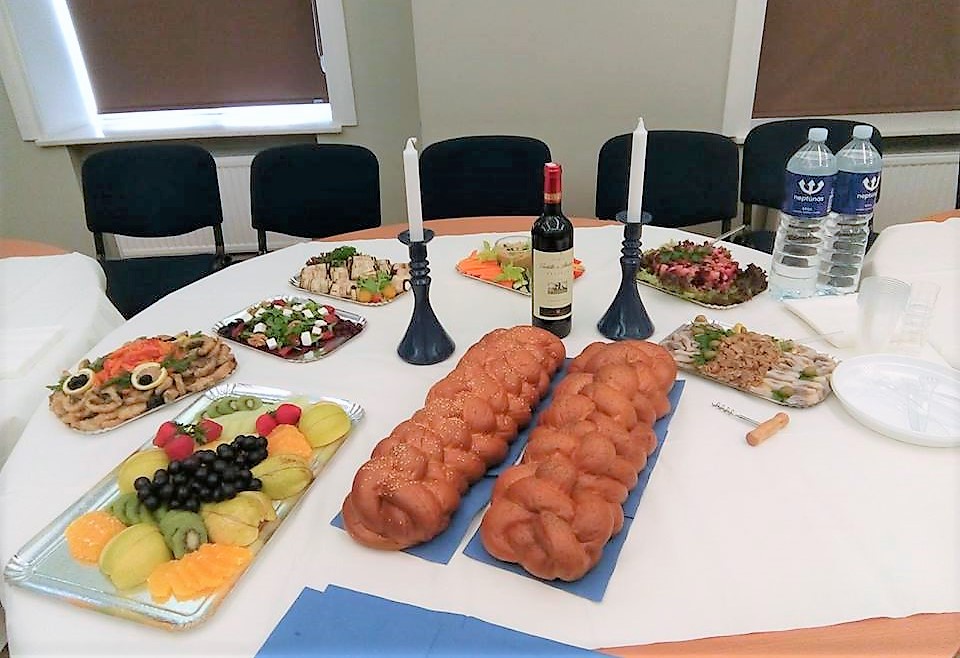
Friday evening students from the Yiddish and Yiddish Literature program of the Vilnius Yiddish Institute at Vilnius University celebrated Sabbath at the Lithuanian Jewish Community.
LJC chairwoman Faina Kukliansky spoke about the importance of these types of courses, saying: “Yiddish is an inseparable part of Jewish culture, Jewish identity. Yiddish isn’t just Jewish songs and a rich folklore. There is an abundance of very interesting literature in Yiddish. I hope Yiddish classes will become just as popular as Hebrew classes are in our community. Yiddish is a living language and it is continuing to develop.”
This year the summer courses are being attended by about 30 students from Poland, Sweden, Germany, Israel, the United States and other countries. Most have Jewish roots and want to learn the language of their forefathers, and to learn more about Litvak culture.
There are also students who say they need to learn Yiddish for work. Philip from Germany said he doesn’t have any Jewish blood but needs Yiddish because he is studying the Holocaust in Byelorussia. Even so, he’s become a Yiddish enthusiast, and said the Yiddish language preserves the philosophy of the Talmud.
Thomas from Stockholm also says he needs Yiddish for his work. He works for Swedish International radio and several years ago they decided to start a broadcast in Yiddish. Thomas was selected to lead the program because he’s Jewish. Although he understands Yiddish, so far he’s been posing questions to guests in English and Swedish. Now he hopes to be able to do this in Yiddish.
Yiddish summer course teachers include professor Anna Verschik from Estonia, professor Abraham Lichtenbaum from Argentina, professor Dov-Ber Kerler, professor Vera Szabó from Israel and this year Canadian stand-up comedian, writer and linguist Michael Wex, author of the best-selling “Born to Kvetch: Yiddish Language and Culture in All Its Moods,” New York, 2005.
The summer course of the Vilnius Yiddish Institute at Vilnius University began in 1998.

